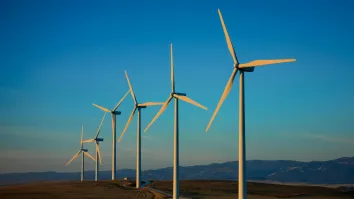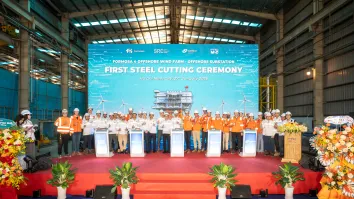Difficulties for IPPs intensify after new PLN rules: Adaro Power CEO
For the past two years, IPPs like Adaro Power struggled with PLN’s ownership and PPA commitment rules.
Plugging Indonesia’s 17GW power project gap has been increasingly difficult over the past two years, with new regulations slowing down the progress of IPPs in completing power purchase agreements (PPA), hitting financial close, and initiating project construction, said Adaro Power deputy CEO Dharma Djojonegoro.
In his presentation at the Asian Power Utility Forum 2019 in Jakarta, Djojonegoro noted that two years ago, state utility PLN decided to change its normal tender procedure. Under its new scheme, PLN assigns projects to its subsidiaries, PT Indonesia Power (IP) or PT Pembangkitan Jawa-Bali (PJB), which also have their own selection process for their partners.
In recent projects, IP or PJB demand to own 51% of the project and ask the partner to finance most of the equity portion, Djojonegoro said. “To be honest, it’s been very challenging for the past few years,” he added.
Ownership issues are not the only problem. “We’ve also seen a worrying trend in the latest PPAs. The take-or-pay commitment (ToP) is now reduced,” the executive said.
This means that PLN now only offers ToP commitment for the tenor of the senior loan, whereas previously ToP is offered for the entire term of the PPA. “Previously it was up to 25 years, now the TOP is only offered for 10 years of below,” Djojonegoro added.
Moreover, for terminations caused by grid errors, PLN could only guarantee a return of 10% or less under the revised scheme. “Obviously, this is difficult for sponsors to accept even if the grid is completely out of power,” Djojonegoro commented, citing that previous PPAs provided for 15% of sponsors’ return.
Financial close issues
Aside from PPAs, financial close (FC) has also been difficult to achieve, Djojonegoro said, citing issues that Adaro Power encountered with the development of its 2x100MW circulating fluidized bed (CFB) coal-fired power plant, Tanjung Power Indonesia, and its 2x1,000 MW ultra supercritical (USC) coal-fired power plant, Bhimasena Power Indonesia.
“Land acquisition was a huge challenge, it still is to a certain extent,” he said, citing the drawn-out process between the PPA and FC for Tanjung Power Indonesia that lasted five years largely due to land issues.
“We basically acquired 95% of the land whilst the remaining 5% was not acquired for proprietary reasons. That is what prevented us from reaching FC. We were helped by a fairly recent law which allowed the government to enforce the purchase of land for public interest. We were one of the first major projects that made use of this law,” Djojonegoro said.
The executive added that in one of their projects, the permits at the provincial level and regency level were different. “There's some criss-cross in the data. That is something that you cannot take for granted in Indonesia, you really have to check at all levels,” he said.
Six months before FC of Tanjung Power Indonesia, the Indonesian central bank insisted all local banks to settle transactions in Indonesian rupiah “which then threw everything into chaos,” Djojonegoro added. As a result, Adaro Power had to come up and adhere to a tri-partite conversion agreement which took some time to negotiate between PLN and the involved lenders.
“In the more recent PPAs, PLN has verbally said that they no longer want to use this tri-partite conversion agreement,” he said, adding that in the future, more FX risk could be transferred from PLN to the project sponsors.
For the same project, resolving zoning issues, staffing concerns and ensuring high quality of local companies’ EPC performance also presented challenges for Adaro Power. The company was further impeded by the expiration of its government guarantee, for which the company did not get a quick solution from authorities. “The Finance Ministry doesn’t know how to extend the government guarantee because they haven’t done that before,” Djojonegoro said.
The CEO also shared some unique issues to their projects’ engineering, procurement, and construction (EPC) phase. For commissioning, he said that “close coordination with PLN is crucial.”
“For our 2x100MW project, we are at the commissioning stage. It is pretty much one of the first IPPs in Tanjung, and for a lot of times, the PLN in the region is not quite sure how to proceed,” he said, adding that they have to closely coordinate with both the PLN offices in the province and Jakarta.
Opportunities arise
Despite the number of issues surrounding project development by Indonesia IPPs, opportunities in renewables remain abundant, as the government aims to reach the target of 23% renewable energy portion in the nation’s energy mix by 2025.
“Despite our coal-fired background, we are actually quite keen to get into renewables. As part of our effort, we are installing a small rooftop solar system. This is mostly for learning purposes because we want to learn as we go,” he said. Adaro Power is developing a 100kWp solar PV project, Makmur Sejahtera Wisesa, set for commercial operations in Q3 2018.
Opportunities in gas well-head and coal mine-mouth power plant projects are also plentiful. Coal projects are still expected to take up half installed energy capacity by 2023 whilst gas combined cycle and gas mobile power plants are expected to eat up 18.8% and 6.6%, the executive concluded.



















 Advertise
Advertise







